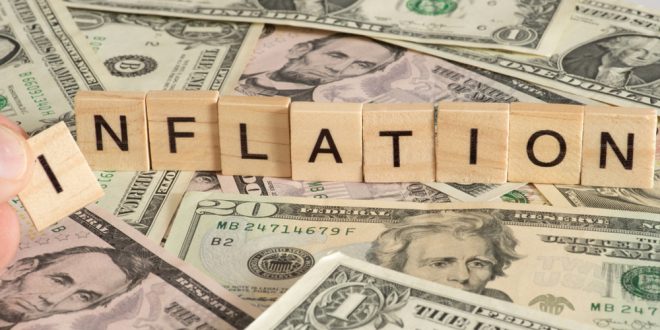The economic consequences of Russia-Ukraine conflict include price surge in Germany hitting a record and inflation in Estonia topping 20 percent. In Spain, the annual inflation has reached 8.5 percent.
In Germany, starting June, for example, the government will offer reductions for the price of gas at the pump and a monthly $10 ticket for public transport across the country.
Germany, Europe’s biggest economy, has been among the hardest hit, with inflation there rising 8.7 percent. France (5.8 percent), Spain (8.5 percent) and Italy (7.3 percent) also saw consumer prices continue a monthslong climb, prompting lawmakers in those countries to offer caps on energy prices or rebates for low-income households to offset the cost of gas and diesel.
Inflation in the eurozone during May hit its highest annual level since the creation of the euro in 1999, Europe’s statistics agency reported on Tuesday, as a record run-up in energy and food prices stoked by the war in East Europe. Hot inflation is heading on its own way throughout EU economy, raising the specter of a lapse into recession.
Energy costs continue to be the single biggest factor pushing up prices for consumers and businesses, rising in May by a record 39.2 percent from the same month a year earlier, while processed food, alcohol and tobacco rose by 7 percent.
Annual inflation in the 19 countries that use the euro currency jumped to a record 8.1 percent in May, from 7.4 percent in April. Prices have been rising for 10 consecutive months and show few signs of deepening the overall cost of living crisis for consumers and forcing European policymakers to initiate a set of measures in order to ease the current situation.
The European Commission recently lowered its economic growth forecasts to 2.7 percent this year, from the 4 percent estimated in winter. At the same time, inflation is hitting record levels and is expected to average 6.8 percent for the year, the commission forecast, leading a growing number of economists to warn that Europe may tip into a sharp slowdown or outright recession before the end of the year.
Across the Atlantic, in the States, consumer price inflation has hit the 8.3 percent threshold, data from April showed, a slight moderation from previous months.
As inflation rates have climbed, the European Central Bank has sped up its policy response and said that the era of negative interest rates could be over as soon as September. European policymakers reached a political deal early Tuesday morning on an embargo on most Russian oil imports, a once unthinkable measure that is aimed at punishing Russia but that economists say will also further hurt European households and industry by pushing prices even higher.
The surge in energy costs has had by far the biggest impact on countries closest to Russia’s borders. Inflation in Estonia, for example, which had previously weaned itself off Russian gas but is now subject to volatile market swings in energy prices, surged by an eye-popping annual rate of 20.1 percent, nearly double the 11 percent recorded in January. In Lithuania, annual inflation rose to 18.5 percent, and in Latvia, it reached 16.4 percent.
In the past year, as inflation began to rise, some European Central Bank policymakers were reluctant to act while wage growth across the region was subdued. But as consumer prices have kept climbing and have spread to more goods and services, the bank is ramping up its process of so-called policy normalization.
By early July, the bank is expected to end its large bond-buying program, and then begin raising interest rates for the first time in more than a decade. Last week, Christine Lagarde, the bank’s president, laid out in unusually clear terms the expected path for interest rate increases — signaling raises in July and September.
The bank’s chief economist, Philip Lane, recently said that increases were likely to be a quarter of a percentage point at a time, but some policymakers have suggested that a larger-than-normal increase, of half a percentage point, might be warranted.

 Noor Trends News, Technical Analysis, Educational Tools and Recommendations
Noor Trends News, Technical Analysis, Educational Tools and Recommendations




